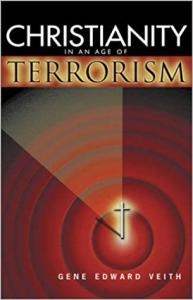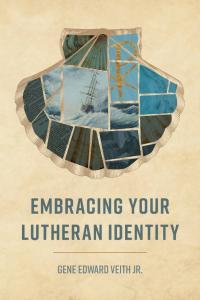 Embracing Your Lutheran Identity
Embracing Your Lutheran Identity
Publisher: Concordia Publishing House ( 2024)
Embracing Your Lutheran Identity uncovers inspiring stories and characters from church history with whom you share an identity. Writing not as a scholar, pundit, or apologist, but as a teacher, Gene Edward Veith Jr. guides you through the Holy Spirit’s work from the early church, through the Reformation, and into Lutheranism today through engaging accounts, modern parallels, and thought-provoking questions. Individually or as a group, come discover (or rediscover) the heritage from whence you came; persecutions, martyrdoms, villains, battles, heroes, lore, and all.
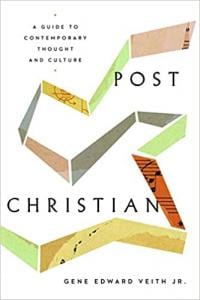 Post-Christian: A Guide to Contemporary Thought and Culture
Post-Christian: A Guide to Contemporary Thought and Culture
by Gene Veith Jr. (Author)
Publisher: Crossway (January 28, 2020)
We live in a post-Christian world. Contemporary thought―claiming to be “progressive” and “liberating”―attempts to place human beings in God’s role as creator, lawgiver, and savior. But these post-Christian ways of thinking and living are running into dead ends and fatal contradictions.
This timely book demonstrates how the Christian worldview stands firm in a world dedicated to constructing its own knowledge, morality, and truth. Gene Edward Veith Jr. points out the problems with how today’s culture views humanity, God, and even reality itself. He offers hope-filled, practical ways believers can live out their faith in a secularist society as a way to recover reality, rebuild culture, and revive faith.
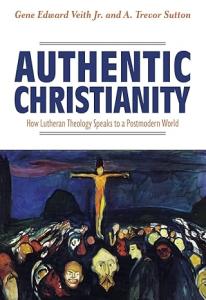 Authentic Christianity: How Lutheran Theology Speaks to a Postmodern World
Authentic Christianity: How Lutheran Theology Speaks to a Postmodern World
by Gene Veith Jr. (Author) and A. Trevor Sutton(Author)
Publisher: Concordia Publishing (October 10, 2017)
Burned-out believers and spiritual secularists have given up any hope that an engaging and meaningful spirituality can be found in a single Christian denomination. So rather than attending worship at a local church, they attend to their spiritual needs elsewhere. Instead of being fed by a single denomination, they feast upon a smorgasbord of spiritual beliefs.
To counter this trend, churches across America are constantly updating their culture to accord with the secular culture.
Authentic Christianity offers another idea – that the Lutheran tradition embodies a framework of Christianity that uniquely addresses the postmodern condition. It does so not by being “emergent” or by making up a new approach to church or to the Christian life. Rather, it does so in an unexpected way: by being confessional, sacramental, and vocational.
Authentic Christianity is a collaboration between an academic of the Boomer generation and a young Millennial pastor. Coming from two very different places – different generations, different vocations, different entries into Lutheranism – authors Gene Veith and Trevor Sutton offer their unique perspectives on how Lutheran theology engages contemporary life.
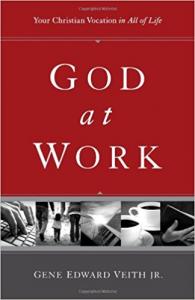 God at Work (Redesign): Your Christian Vocation in All of Life
God at Work (Redesign): Your Christian Vocation in All of Life
by Gene Veith Jr.(Author)
Publisher: Crossway; Redesign edition (August 2, 2011)
Work can be a daily grind—a hard, monotonous set of thankless tasks. In the midst of the ongoing toil, many are plagued by a lack of purpose, confused as to what to do and who to become. And while some of our vocations may seem more overtly meaningful than others’, the truth is that most of us work because we have to. It is a means to an end—survival.
Given the enormous amount of time each of us spends working, we would do well to understand our callings and how God works through them.
Here culture expert Gene Veith gives us more than a simple understanding of work—more than a catchy slogan to “do all things for the glory of God.” He outlines a spiritual framework for answering questions such as:
What does it mean to be a Christian businessperson or a Christian artist or a Christian lawyer, scientist, construction worker or whatever?
How can I know what I am supposed to do with my life?
What does it mean to raise a Christian family? And what if I don’t have kids?
Unpacking the Bible’s teaching on work, Veith helps us to see the meaning in our vocations, the force behind our ethics, and the transformative presence of God in our everyday, ordinary lives.
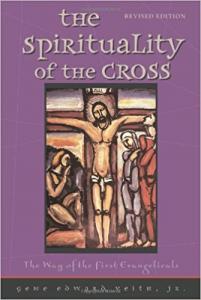 Spirituality of the Cross Revised Edition
Spirituality of the Cross Revised Edition
by Gene Edward Veith (Author)
Publisher: Concordia Publishing; 2 edition (February 1, 2010)
Veith explores and presents a true understanding of justification by faith, the means of grace, vocation, theology of the cross, the two kingdoms, worship, and the church.
This is a revised edition of the original text written in 1999. This revised edition contains an updated bibliography, useful clarifications, and some new material.
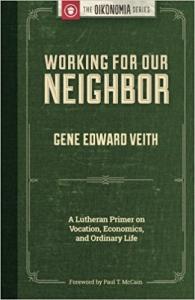 Working for Our Neighbor: A Lutheran Primer on Vocation, Economics, and Ordinary Life
Working for Our Neighbor: A Lutheran Primer on Vocation, Economics, and Ordinary Life
by Gene Edward Veith (Author) and Paul T McCain (Foreword)
Publisher: Christian’s Library Press (March 5, 2016)
The Protestant Reformation was a catalyst for social mobility, universal education, and the rise of modern market economies. In his classic study The Protestant Ethic and the Spirit of Capitalism, Max Weber showed the connections between Protestantism and the new economics. Weber, however, focused on the Calvinists and Puritans and speculated that economic success became a way of proving one’s election. He thus posited, with little evidence, a spiritual self-interest that was parallel to economic self-interest, distorting both Protestantism and capitalism. Weber neglected the specifically Lutheran doctrine of vocation, which emphasizes the spiritual and moral value of economic activity. According to Luther, God himself is hidden in vocation, as he providentially works through ordinary human beings to care for his creation. In their work—not only in the economy, but also in family, church, and community—Christians live out their faith in love and service to their neighbors. For Lutherans, the doctrine of vocation is nothing less than the theology of the Christian life. In its social impact, vocation gave a theological basis for the division of labor, social equality, and individual freedom. In this elucidating work, Gene Edward Veith connects vocation to justification, good works, and Christian freedom—defining how the Lutheran contribution to economics can transfigure ordinary life, and work, with the powerful presence of God.
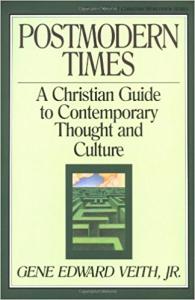 Postmodern Times: A Christian Guide to Contemporary Thought and Culture
Postmodern Times: A Christian Guide to Contemporary Thought and Culture
by Gene Edward Veith Jr. (Author), Marvin Olasky (Series Editor)
Publisher: Crossway; First Paperback Printing edition (February 15, 1994)
The modern era is over. Assumptions that shaped twentieth-century thought and culture, the bridges we crossed to this present moment, have blown up. The postmodern age has begun.
Just what is postmodernism? The average person would be shocked by its creed: Truth, meaning, and individual identity do not exist. These are social constructs. Human life has no special significance, no more value than animal or plant life. All social relationships, all institutions, all moral values are expressions and masks of the primal will to power.
Alarmingly, these ideas have gripped the nation’s universities, which turn out today’s lawyers, judges, writers, journalists, teachers, and other culture-shapers. Through society’s influences, postmodernist ideas have seeped into films, television, art, literature, politics; and, without his knowing it, into the head of the average person on the street.
Christ has called us to proclaim the gospel to a culture grappling with postmodernism. We must understand our times. Then, through the power that Christ gives, we can counter the prevailing culture and proclaim His sufficiency to our society’s very points of need.
“While pundits wring their hands over the radicalism of political correctness, speech codes, and outrageous art, Gene Edward Veith takes unerring aim at the intellectual roots of it all. The most important book for anyone who wants to know what’s behind the political correctness movement.” –Chuck Colson, founder, Prison Fellowship
“An ideal guide for Christians who don’t want to be like the notorious military strategist preparing to fight the last war instead of the next one.” –Herbert Schlossberg, author, Idols for Destruction
“Pinpoints the strengths and weaknesses of postmodern thought and points the way for Christians to take advantage of both.” –E. Calvin Beisner, Covenant College
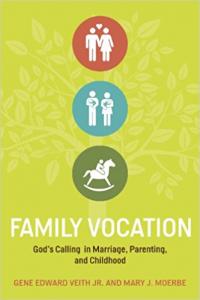 Family Vocation: God’s Calling in Marriage, Parenting, and Childhood
Family Vocation: God’s Calling in Marriage, Parenting, and Childhood
by Gene Edward Veith Jr. (Author), Mary J. Moerbe (Author)
Publisher: Crossway (February 29, 2012)
What does it mean to be called as a husband, a wife, a parent, a child?
How does the grace of the gospel impact how we carry out these particular callings?
How does God’s presence address the struggles that our own family faces?
Gene Veith joins forces with his daughter Mary Moerbe to explore these kinds of questions in light of Christian vocation and its applications for family life. They show how the Christian faith is lived out precisely in our ordinary relationships, and how a biblical understanding can equip us to move away from common confusions and dysfunctions to persevere in love.
Written with sensitivity and wisdom, Family Vocation addresses the perennial problems and joys of family life and provides a compelling paradigm for creating loving families in the face of cultural pressure.
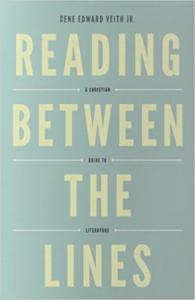 Reading Between the Lines (Redesign): A Christian Guide to Literature (Turning Point Christian Worldview Series)
Reading Between the Lines (Redesign): A Christian Guide to Literature (Turning Point Christian Worldview Series)
by Gene Edward Veith Jr. (Author)
Publisher: Crossway; Redesign edition (January 31, 2013)
A guidebook for those who want to cultivate literary taste—
knowing how to recognize and benefit from books that are spiritually and aesthetically good.
Literary expert Gene Veith helps book lovers better understand what they read as he explains how each major literary genre communicates. Showing how comedy, tragedy, realism, and fantasy can portray the Christian worldview, Veith delves into related topics such as the value of fairy tales, the tragic and the comic sense of life, the contrast between the classical and the Hebraic traditions, and the role of postmodernity (a subject of vital importance to Christians). Introducing readers to writers past and present, Veith helps Christians to influence culture from an educated perspective and get more out of their reading.
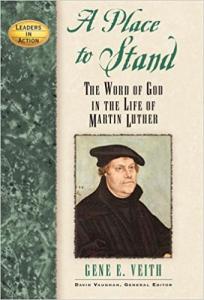 A Place to Stand (Leaders in Action)
A Place to Stand (Leaders in Action)
by Gene Edward Veith (Author), David J. Vaughan (Editor)
Publisher: Cumberland House Publishing; Revised and Revised and Updated to Include New Develop and B edition (May 15, 2005)
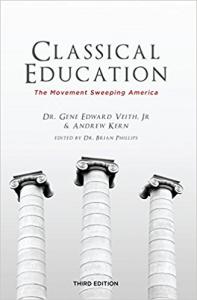 Classical Education: The Movement Sweeping America
Classical Education: The Movement Sweeping America
by Gene Edward Veith Jr. (Author), Andrew Kern (Author)
Publisher: Capital Research Center; 3 edition (April 30, 2015)
New Third Edition
Classical Education: The Movement Sweeping America examines the decline of American education and offers a solution. It is not more spending or a new and innovative program. Rather the solution, according to authors Gene Edward Veith Jr. and Andrew Kern, is classical education. Whether you are a parent anxious about your child’s education, a family considering homeschooling, or a young person contemplating a career as a teacher, this book will help you think through what a true education involves.
After a brief survey of where education in America has gone wrong, including a glance at controversial efforts like Common Core and Race to the Top, the authors describe the alternative to today’s failed fashions in learning: a classical education.“Classical education,” they explain, “cultivates wisdom and virtue by nourishing the soul on truth, goodness, and beauty.”
Succeeding chapters sketch how this approach has been applied by a wide variety of educators, including Christians (Protestant and Catholic), Great Books enthusiasts, and social entrepreneurs who serve poor and minority students at home and abroad. Chapters are also devoted to homeschooling and higher education. In an epilogue, the authors honestly confront the weaknesses to which classical educators are prone and offer hope for an even stronger future for this growing movement.
With a New Introduction by Dr. Brian Phillips.
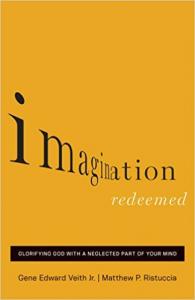 Imagination Redeemed: Glorifying God with a Neglected Part of Your Mind
Imagination Redeemed: Glorifying God with a Neglected Part of Your Mind
by Gene Edward Veith Jr. (Author), Matthew P. Ristuccia (Author)
Publisher: Crossway (November 30, 2014)
Your imagination matters.
Contrary to popular perception, the imagination isn’t just for kids, artists, or fans of science fiction. Rather, it’s what bridges our thinking and feeling, allowing us to do everything from planning a weekend getaway to remembering what we ate for breakfast.
In Imagination Redeemed, Gene Veith and Matthew Ristuccia uncover the imagination’s importance for Christians, helping us understand who God is, what his Word teaches, and how we should live in the world today. Here is a call to embrace this forgotten part of the mind as a gift from God designed to bolster faith, hope, and love in his people.
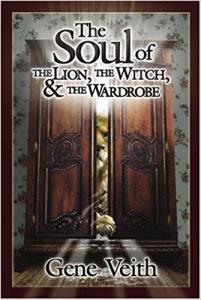 The Soul of The Lion, The Witch, & The Wardrobe
The Soul of The Lion, The Witch, & The Wardrobe
by Gene Veith (Author)
Publisher: David C. Cook; New edition (August 19, 2005)
When C. S. Lewis published The Lion, the Witch and the Wardrobe he created one of Christendom’s most cherished allegories. Viewers of the movie, as well as readers of the book will come away deeply moved by what they have encountered in Narnia.
They will have countless questions such as: How did the Witch take over Narnia? Why couldn’t Edmund resist temptation? Why did the Lion have to die? And they will find the answers in this wonderful book written for Christians and non-Christians alike.
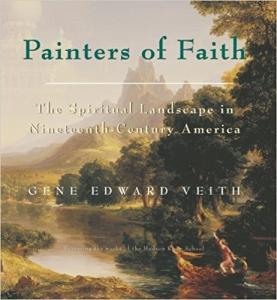 Painters of Faith
Painters of Faith
by Gene Edward Veith (Author), Gene Veith (Author)
Publisher: Regnery Publishing; First Edition edition (August 15, 2001
From the beginning, American culture was steeped in the language of theology. The arts, in particular, were inextricably linked with religion.
As author Gene Edward Veith shows in Painters of Faith, belief in the spiritual power of art provided the basis for America’s first major artistic movement, the Hudson River School. The personal faith of Thomas Cole, Asher B. Durand, Jasper Cropsey, Frederic Church, and the other Hudson River School painters inspired their transcendent landscapes.
In this fascinating and beautifully illustrated work, Veith explores that faith and the crucial role it played in their artistic creations. Aesthetics, he shows, could not be separated from theology. In reconstructing the worldview of the artists as well as of much of the American public in the nineteenth century, Veith delves into the writings of Martin Luther, John Calvin, and the American Puritan preacher Jonathan Edwards to find the roots of a Protestant aesthetic.
While Protestantism is not ordinarily associated with a strong artistic tradition, Veith reveals how Protestant Christianity in nineteenth-century America was indeed a catalyst for the arts. In fact, the clergy were among the most ardent promoters of the arts in the new republic, and theological journals continually carried on discussions about art. The Hudson River School artists, in particular, expressed ambitious themes, employing narrative, symbolism, and allegory to convey moral and spiritual truths.
Complete with forty-two full-color illustrations, Painters of Faith is an in-depth examination of the artistic and theological context in which these painters worked—and a gripping look at the cultural development of early America.
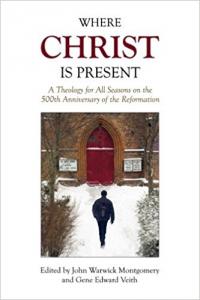 Where Christ Is Present: A Theology for All Seasons on the 500th Anniversary of the Reformation
Where Christ Is Present: A Theology for All Seasons on the 500th Anniversary of the Reformation
by John Warwick Montgomery (Author, Editor, Contributor), Gene Edward Veith (Editor, Contributor), A. S. Francisco (Contributor), Rod Rosenbladt (Contributor), Harold Sinkbeil (Contributor), Todd Wilken (Contributor), Uwe Siemon-Netto (Contributor), Craig A. Parton (Contributor), Steven A. Hein (Contributor), Angus J. L. Menuge (Contributor), Cameron A. MacKenzie (Contributor)
Publisher: NRP Books; 1 edition (April 22, 2015)
Five hundred years ago, the church of Jesus Christ underwent a Reformation.
A lot happened after Martin Luther posted his 95 theses on the castle church door in Wittenberg. But the fallout was not simply the start of Protestantism. The Roman Catholic Church also recast itself in response to Luther’s call for reforms. And contrary to common belief, Martin Luther did not set out to start a new church. Rather, he was trying to reform the church that already existed by reemphasizing its essence–namely, the “good news” (the gospel) that Jesus forgives and saves sinners.
The unity of the church was broken when the pope rejected this call for reform and excommunicated Luther, starting a chain of events that did lead to the institutional fracturing of Christendom and to a plethora of alternative Christian theologies. But, as many – including conservative Catholics – now admit, the church did in fact need reforming. Today, the church – including its Protestant branches – also needs reforming. Some of the issues in contemporary Christianity are very similar to those in the late Middle Ages, though others are new. But if Luther’s theology can be blamed – however unfairly – for fragmenting Christianity, perhaps today it can help us recover the wholeness of Christianity.
The religious climate in the early 21st-century is simultaneously highly religious and highly secularized. It is a time of extraordinary spiritual and theological diversity. In the spirit of the anniversary we are observing, this book will propose the kind of Christianity that is best suited for our day. The remedies offered here are available by way of the same theology that was the catalyst for reforming the church five hundred years ago.
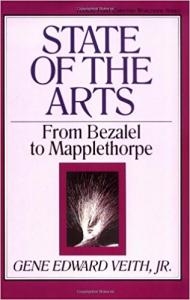 State of the Arts: From Bezalel to Mapplethorpe
State of the Arts: From Bezalel to Mapplethorpe
by Gene Edward Veith (Author)
Publisher: Crossway; unknown edition (April 1, 1991)
We cannot escape the arts. They permeate our lives and our culture–the décor, architecture, music, entertainment, everyday utensils. The imagination of this age, its ideas and concerns, percolate throughout the culture via the arts. These ideas affect us for good or for evil. The choice is not whether to live with art; we must choose whether to live with good art or bad art. Art–like all things human–needs to be redeemed. Christians cannot abandon the arts to the secular world, but can use them to display God’s glory. This book will help us develop an informed artistic taste, open yet critical, discerning yet appreciative of what is truly excellent.
“State of the Arts wisely steers Christians between the two extremes of accepting inane cultural trends or dismissing all cultural pursuits as worldly. The book establishes a strong Biblical context for understanding expressions of human creativity and powerfully defends art as a gift from God. Here is a much-needed counterattack on the aesthetic terrorism by entrenched enemies on the true, the good, and the beautiful.” –Ken Myers, author of All God’s Children and Blue Suede Shoes
“Dr. Veith’s book stresses an important and often overlooked truth: that no one, professing Christians included, can afford to ignore the arts. They have profound effects on us, our children, and our society. This book is both highly entertaining and intellectually and aesthetically rewarding. It suggests ways to counter the decadence and corruption that plagues the contemporary art world.” –Joseph Baldacchino, President, National Humanities Institute
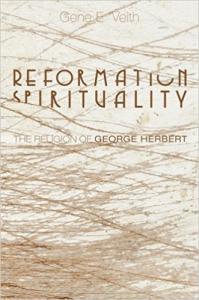 Reformation Spirituality: The Religion of George Herbert
Reformation Spirituality: The Religion of George Herbert
by Gene E. Veith (Author)
Publisher: Wipf & Stock Pub; Reprint edition (January 16, 2013)
George Herbert, in his poetic skill and the depth of the spiritual experiences he explores, may be the greatest of all religious poets. This is a study of the specific religious experiences and beliefs that Herbert writes about, both in his poetry and in his prose. As such, it also examines the spiritual landscape of seventeenth-century England, a period, for all of its controversies, still dominated by the understanding of God and the human condition articulated by Martin Luther and systematized by John Calvin. Reformation spirituality, which was different both from medieval Catholicism and late Protestantism, is itself little understood by literary historians, who have tended to look to medieval or Counter-Reformation ideas and practices or to a simplistic distinction between “Anglicans” and “Puritans” as ways of understanding the religion of the time. This study presents Reformation spirituality phenomenologically, from the inside. Just as Reformation spirituality reflects Herbert’s poetry, Herbert’s poetry illuminates Reformation spirituality, showing the experiential and mystical dimensions of an important religious tradition.
 Modern Fascism: Liquidating the Judeo-Christian Worldview (Concordia Scholarship Today)
Modern Fascism: Liquidating the Judeo-Christian Worldview (Concordia Scholarship Today)
by Jr. Gene Edward Veith (Author)
Publisher: Concordia Publishing House; 1st edition (February 1, 1993)
This new book in the Concordia Scholarship Today Series examines how fascist views permeate modern philosophy, art, movies, and eugenics–decades after the defeat of the Axis powers in World War II. Dealing with a variety of fascist thought–from the intellectuals to the skinheads–Veith shows how the fascist’s focus on self and human will is in direct opposition to the Christian’s faith in a righteous God. (Concordia Publishing House)
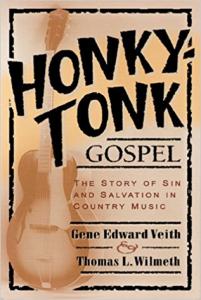 Honky-Tonk Gospel: The Story of Sin and Salvation in Country Music
Honky-Tonk Gospel: The Story of Sin and Salvation in Country Music
by Gene Edward Veith (Author), Thomas L. Wilmeth (Author)
Publisher: Baker Pub Group; First Edition edition (April 1, 2001)
Well-paid and educated professionals are joining the crowd of country music aficionados. Included in this CD-buying and concert-going audience are Christians.
This book explores the intense spiritual tensions and differing values that emerge so clearly in the genre by examining country music’s history, selected artists, and themes. Most important, it answers a compelling question: How is it that country artists can sing about a Saturday night bash at a honky-tonk and then turn around and extol the praises of going to worship on Sunday?
Readers will learn that the country music worldview is large enough to encompass both sin and grace. In fact, country music is popular because it sings about almost every facet of life.
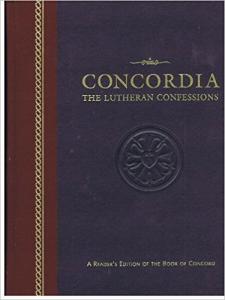 Concordia: The Lutheran Confessions–A Readers Edition of the Book of Concord
Concordia: The Lutheran Confessions–A Readers Edition of the Book of Concord
by Paul T. McCain (Editor), Gene Edward Veith Jr. (Editor), Edward A. Engelbrecht (Editor), Robert C. Baker (Editor), William H. T. Dau (Translator), Gerhard Friedrich Bente (Translator)
Publisher: Concordia Pub House; 1st edition (January 2, 2007)
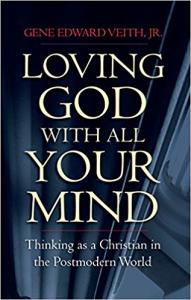 Loving God with All Your Mind: Thinking as a Christian in the Postmodern World
Loving God with All Your Mind: Thinking as a Christian in the Postmodern World
by Gene Edward Veith Jr. (Author)
Publisher: Crossway; Revised ed. edition (October 7, 2003)
Our world is alive with fascinating new ideas, discoveries, and technologies. But for Christians this can also present problems-especially when the values of postmodernism and secular university life conflict with basic Christian principles. What should Christians do when their beliefs come under attack in the classroom or the public square?
Loving God with All Your Mind shows us that the answer is neither wholesale rejection of intellectual life and culture, nor blind acceptance of it. The answer lies in understanding that Jesus is Lord of all of life and that everything in life must be carefully viewed in the light of what Christ’s lordship means. Gene Edward Veith unfolds a dazzling critique of the postmodern intellectual world and culture. He affirms the part that is good and true, but he also shows crucial weaknesses that have such a hold over contemporary thought. This book shows Christians how to survive and flourish in a postmodern world while affirming the truth of the Christian faith.
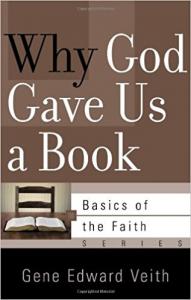 Why God Gave Us a Book (Basics of the Faith)
Why God Gave Us a Book (Basics of the Faith)
by Gene Edward Veith (Author)
Publisher: P & R Publishing (July 22, 2011)
Many people look within themselves, mining their thoughts and feelings for “the voice of God.” And yet God has already spoken. The incarnate Word makes himself known in the written Word, and this communication keeps us personally connected to him. We need nothing else.
Gene Veith makes this clear as he examines not only the sufficiency of God’s Word, but also the flawed thinking of those who try to add to or detract from it. This passionate, personal booklet is a call for all of us to return to God’s Word as our one and only authority in faith and practice. Basics of the Faith booklets introduce readers to basic Reformed doctrine and practice. On issues of church government and practice they reflect that framework otherwise they are suitable for all church situations.
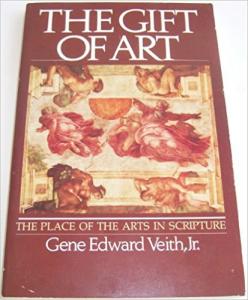 The gift of art: The place of the arts in Scripture
The gift of art: The place of the arts in Scripture
by Gene Edward Veith (Author)
Publisher: InterVarsity Press (1983)
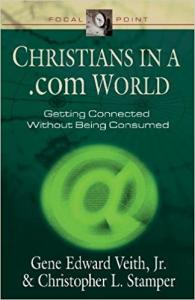 Christians in a .com World: Getting Connected Without Being Consumed (Focal Point Series)
Christians in a .com World: Getting Connected Without Being Consumed (Focal Point Series)
by Gene Edward, Jr. Veith (Author, Series Editor), Christopher L. Stamper (Author)
Publisher: Crossway Books (November 21, 2000)
In the Internet we are facing the biggest information revolution since the printing press. This technology presents new challenges to our culture as a whole, making it essential that we as Christians be “plugged in.” And while millions are online, you, like many, may be simultaneously uneasy about where this new medium is leading us.
Noted culture critic Gene Veith and Chris Stamper, a leading voice in modern technology, want to help you understand the significance cyberculture has for us as Christians. The authors tackle the current controversies, including censorship, the possible demise of print, and how it all ties into postmodernism. As they challenge the myths, probe the weaknesses, and reveal the possibilities of this new and continually developing medium, you will become an informed and discerning traveler on the information highway. One who understands the cultural and worldview implications of the Internet and who knows how to be wired to it but not entangled by it.
Christianity in an Age of Terrorism
by Gene Edward Veith (Author)
Publisher: Concordia Publishing; Edition Unstated edition (October 1, 2002)
This book is a Christian response to the events of Sept. 11, 2001, written for the general Christian reader from the Lutheran point of view.
It shows that the Islamic challenge makes this a religious war. Veith warns against false response, such as generic religion or secularism. He points to Jesus Christ as our one hope and outlines duties of the Christian citizen.
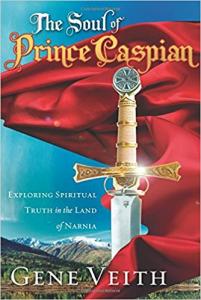 The Soul of Prince Caspian: Exploring Spiritual Truth in the Land of Narnia
The Soul of Prince Caspian: Exploring Spiritual Truth in the Land of Narnia
by Gene Edward Veith (Author)
Publisher: David C. Cook; New edition (February 1, 2008)
Through best-selling books and now blockbuster motion pictures, C. S. Lewis’s masterpiece “The Chronicles of Narnia” has captured the hearts and imaginations of millions of children and adults. When Lewis wrote this acclaimed series more than half a century ago, many considered it a mere children’s allegory and missed the rich spiritual meaning of the Christian faith that Lewis was clearly communicating.
In The Soul of the Lion, the Witch and the Wardrobe, Gene Veith revealed the mysteries and meanings of the first Narnia book. And now with the motion picture release of the second in the series, Veith returns to dig deeply into the biblical message behind this beloved story.
In The Soul of Prince Caspian, Veith reveals how Lewis takes on the modern mindset that has literally forgotten Christ—just as Narnia has forgotten Aslan. As Veith unlocks the story of Prince Caspian, you’ll discover how Lewis’s other writings add depth and clarity to his message. And you’ll see that, while Prince Caspian may be about the fantastic land of Narnia, it’s also about your world.
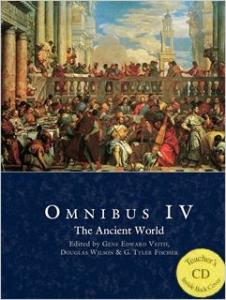 Omnibus IV: The Ancient World
Omnibus IV: The Ancient World
by Gene Edward Veith (Editor), Douglas Wilson (Editor), G. Tyler Fischer (Editor)
Publisher: Veritas Press (2009)
Covering history, literature and theology in an integrated way, you will find great helps and tools to study the great works found in the most recent time period. Students will learn to look at ideas and events with a biblical worldview, while their composition and logical skills are refined. And it’s written so that a student can start with this level, if needed. This one-of-a-kind program begins with the student text and teacher CD-ROM. This well-thought-out, manageable tool, with daily lesson plans, will make teaching and interacting with the greatest works of Western Civilization both enjoyable and profitable. With Trinitarian thinking at the core of the study, students will learn to interact with timeless material in a wise and godly way. Students completing all six years of Omnibus will have carefully studied every book of the Bible, too. The student text assigns the readings in the primary and secondary books for each semester. We have gathered these books into discounted kits. The primary reading covers books that the student will interact with most. Papers, tests, field trips, etc. will generally be more geared to the primary books. Secondary reading is not necessarily less important, but it is given less emphasis. -Veritas Press
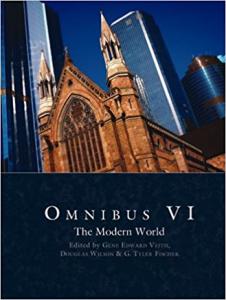 Omnibus VI: The Modern World Student Text
Omnibus VI: The Modern World Student Text
by Gene Edward Veith (Editor), Douglas Wilson (Editor), G. Tyler Fischer (Editor)
Publisher: Veritas Press (2009)
The student text assigns the readings in the primary and secondary books for each semester. We have gathered these books into discounted kits. The primary reading covers books that the student will interact with most. Papers, tests, field trips, etc. will generally be more geared to the primary books. Secondary reading is not necessarily less important, but it is given less emphasis.

